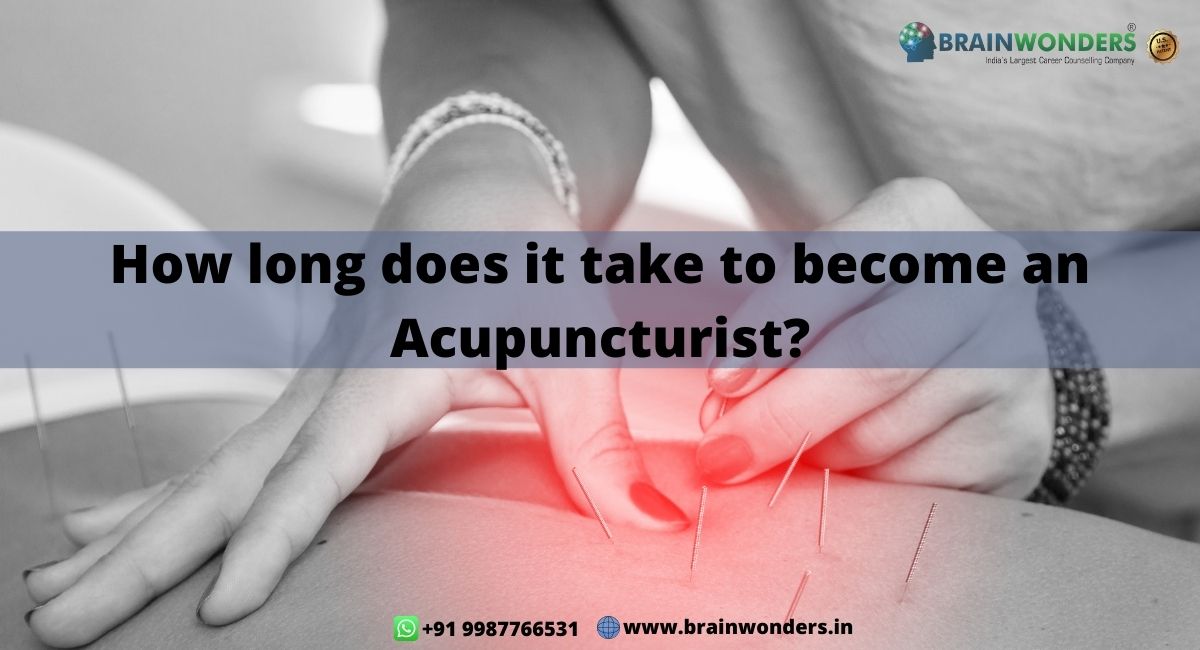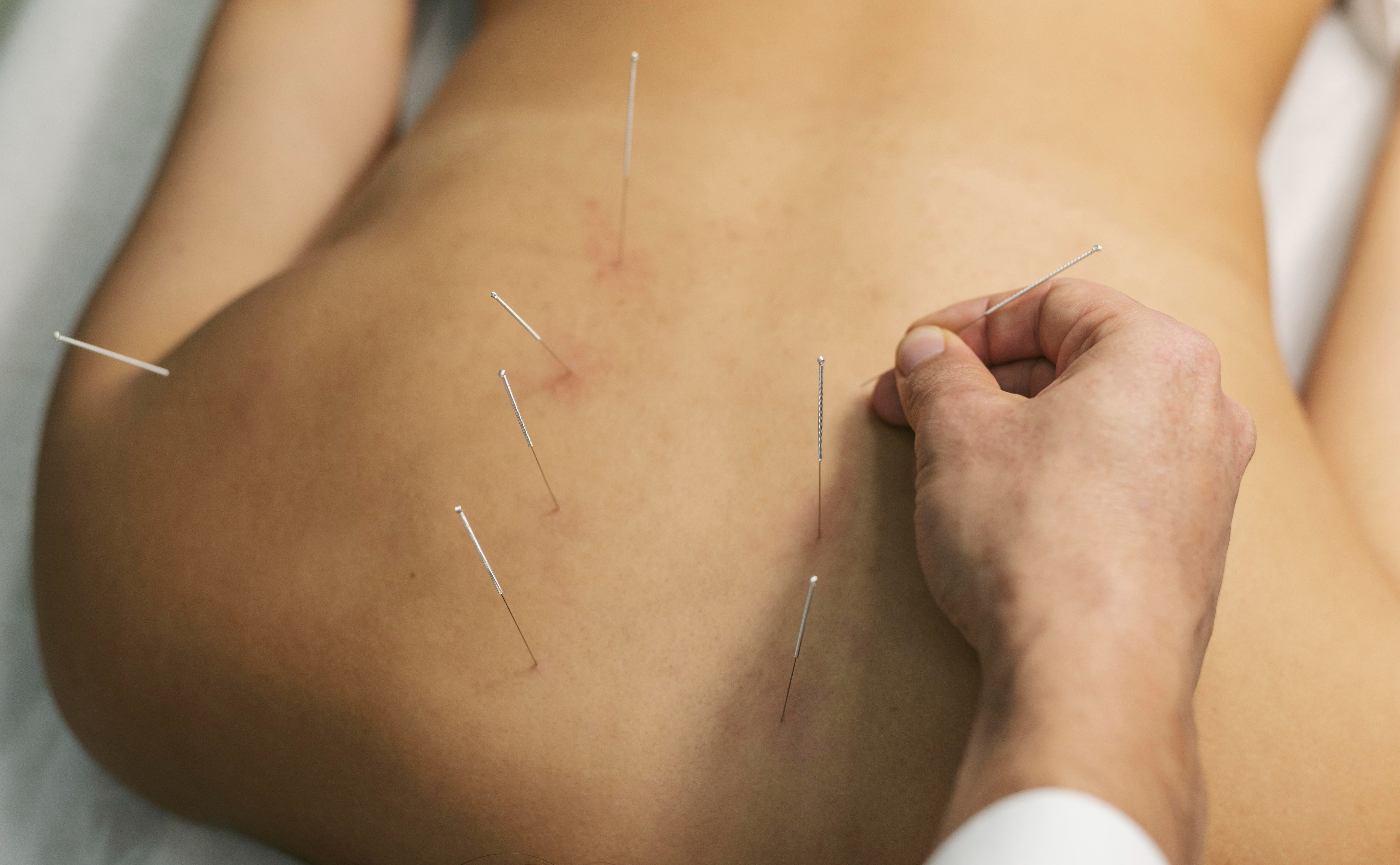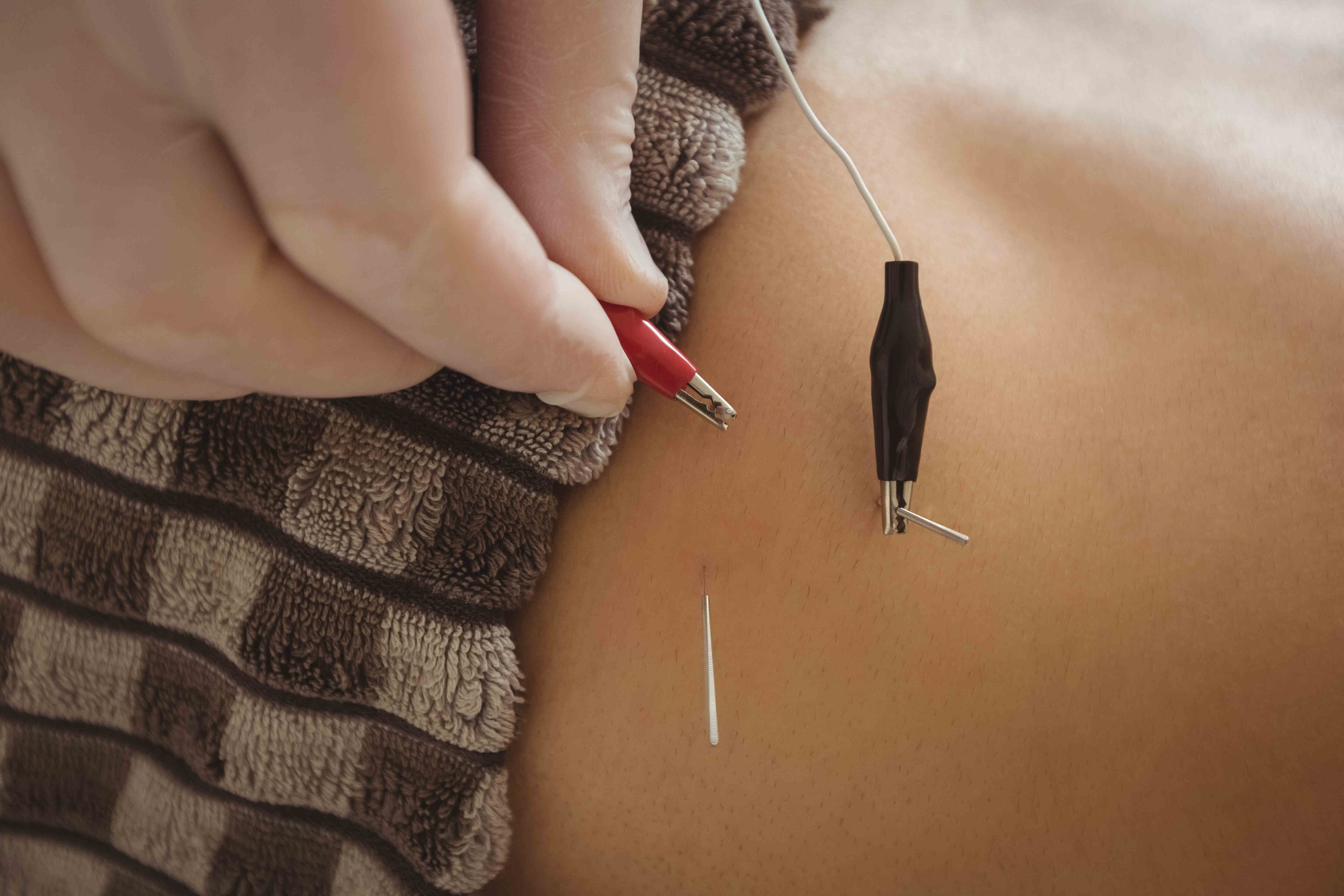

We have a database of over 11,000 colleges all over India.
Connect with us to find your perfect fit!
Blog
26 November,2021 | By Brainwonders

Let’s get an idea about what acupuncture is before we dive into the what, when and how of becoming an acupuncturist. Acupuncture is a method of treatment that entails inserting very thin needles into a person's skin at varying depths and in specific locations on the body. It's been shown in studies to help with pain relief, and it's also used for a variety of other ailments. The National Center for Complementary and Integrative Health (NCCIH) states that there is limited evidence for its usefulness in areas other than pain. In terms of science, it is still uncertain how acupuncture works. Some believe it works by harmonizing vital energy, while others say it works through a neurological function. Acupuncture is still debatable among Western doctors and scientists.

Traditional Chinese medicine views health as the result of a harmonious balance of the opposing extremes of the life essence known as "qi," pronounced "chi." Illness is said to be the result of a force imbalance. Qi is thought to flow through the human body's meridians or passageways. These meridians and energy flows are available through the body's 350 acupuncture sites.
It is thought that inserting needles into these places in the appropriate combinations will restore proper energy flow. There is no scientific confirmation that the meridians or acupuncture points exist, and it is difficult to prove that they do or do not, yet multiple studies suggest that acupuncture can help with certain diseases.
Recommended Read: What are Bio Pharmacy Informatics and its key role?
Some experts have described acupuncture using neurobiology. Acupuncture points are hypothesized to be areas of contact between nerves, muscles, and connective tissue. The stimulation improves blood flow while also causing the body's natural painkillers to activate. Because of the intrusive nature of acupuncture, it is difficult to conduct studies with sufficient scientific controls.
There is no scientific confirmation that the meridians or acupuncture points exist, and it is difficult to prove that they do or do not, yet multiple studies suggest that acupuncture can help with certain diseases.
Acupuncture points are said to be positioned on meridians, which are pathways for vital energy in traditional Chinese medicine. "Qi" or "chi" is the name for this energy. An acupuncturist will inspect and assess the patient's condition before inserting one or more, sterile needles and providing self-care or complementary therapies such as Chinese herbs.
Depending on where the needles will be put, the patient will be asked to lie on their back, front, or one side. Acupuncturists should only use single-use, disposable, sterilized needles. When each needle is put, the patient may feel a brief stinging or tingling sensation.
Recommended Read: Things That You Need to Know to Be an Accountant
After the needle is inserted, there may be a mild ache at the needle's base that subsides. Acupuncture is usually a painless procedure. After insertion, the needles are sometimes heated or electrically stimulated. The needles are expected to stay in place for 5 to 30 minutes. The number of sessions a person could require varies on the basis of the kind of problem being looked at. Over several months, a person with a chronic disease may require one to two treatments every week. After 8 to 12 sessions, an acute issue usually improves.

Acupuncturists must have a degree (master's or doctorate) in Acupuncture before they can practice. This profession necessitates good training and experience, therefore students should enrol in a reputable college to study acupuncture courses.
For 10+2 students, the Indian Academy of Acupuncture Science in Aurangabad offers a one-year diploma and a three-year degree in Acupuncture. Those having a bachelor's degree in healthcare or alternative medicine, such as MBBS, BHMS, BAMS, BUMS, Bachelor of Naturopathy, Bachelor of Acupuncture, and DTCM, are eligible for the two-year Master's degree programme in Acupuncture (Department of Tourism and Commerce Marketing). A degree in physiology, anatomy, biology, or psychology will be beneficial to aspiring acupuncturists. Acupuncture training and correspondence courses are also available at the institute.
Brainwonders Career Counselling: GET THE RIGHT GUIDANCE TO LEAP THROUGH YOUR CAREER
The Indian Board of Alternative Medicines, Kolkata, which has been properly registered by the Government of West Bengal, offers a one-year Doctor of Medicine in Acupuncture - M.D. (ACU) programme via remote education. Those who have finished their MBBS, BDS, DMS, DHMS, BHMS, BAMS, BASM, BEMS, BIAMS, BNYT, BATS, BUMS, BPT, B.Pharm, MD (AM), or any other degree programme from an accredited university are qualified. Practitioners and researchers who have been practising for the last ten years are exempt from the necessary basic qualification and can apply directly to the Doctorate programme.
Indira Gandhi National Open University (IGNOU) offers an online PG Diploma in Acupuncture programme for medical graduates (Allopathy, Homeopathy, Ayurveda, Unani, Siddha, Yoga, and Naturopathy) that can be completed in 1 to 3 years. The International College of Acupuncture and Natural Medicine (ICANM) provides a one-year online certificate training programme with four 10-day contact sessions every year. Individuals having a Bachelor's degree in Allopathy, Homeopathy, Ayurveda, Unani, Siddha, Yoga, or Naturopathy, as well as physiotherapists and dentists, are eligible for this course. Alternative Medicine College provides a two-year Associate degree in Acupuncture for 10+2 students and a one-year postgraduate diploma in Acupuncture for graduates of healthcare, alternative medicine, or a similar field.
Acupuncture courses teach students about Acupuncture points of the body, Fundamentals of Acupuncture, Acupuncture Meridians, Five Element Theory, Ancillary Acupuncture, Classical Acupuncture, Applied Acupuncture, the history and philosophy of traditional Chinese medicine (TCM), Acupuncture theory, and the practice of Acupuncture therapies, among other things. Through these courses, students gain an in-depth understanding of the skill of putting needles at the correct spots and providing relief to patients.
In this sector, remuneration is mostly determined by the success of the practice. One may not be able to generate much money during the early stages of acupuncture practice. An Acupuncturist with years of practice might earn a big number of regular clients and a good consistent income. Once they've established themselves, they'll be able to charge a fee per session and earn more money. The length of the therapy programme is determined by the severity of the condition
Fill the form to know how!